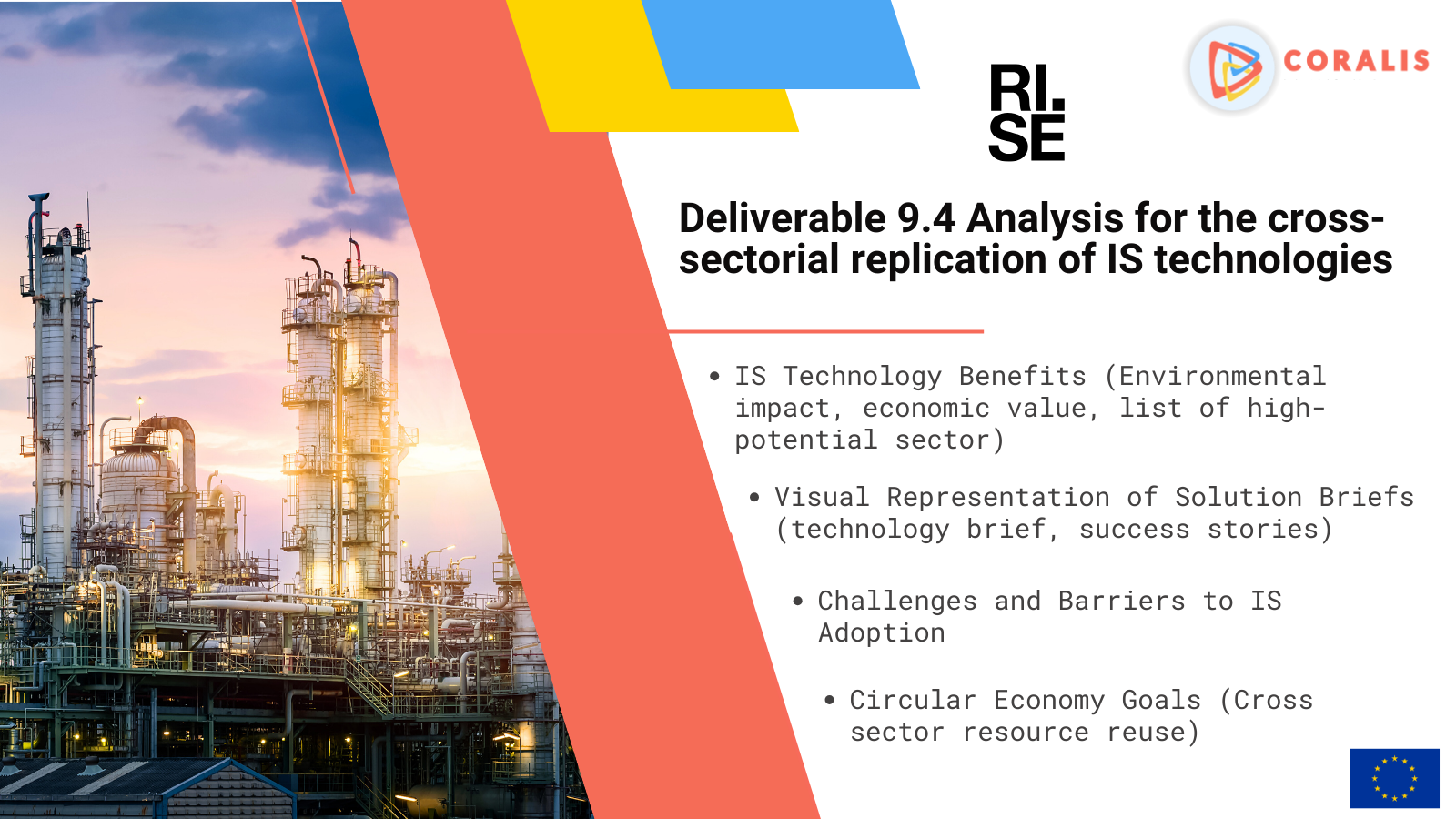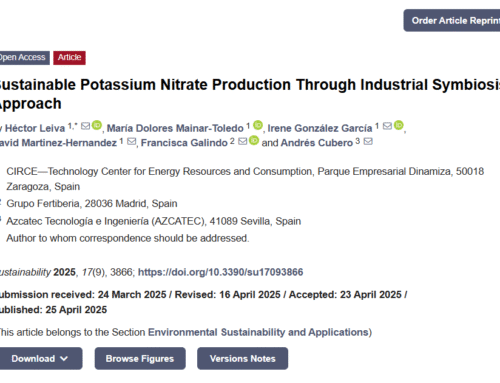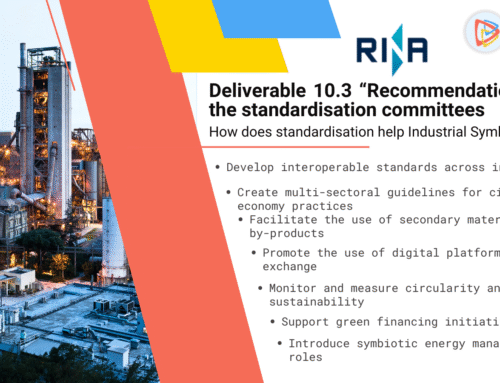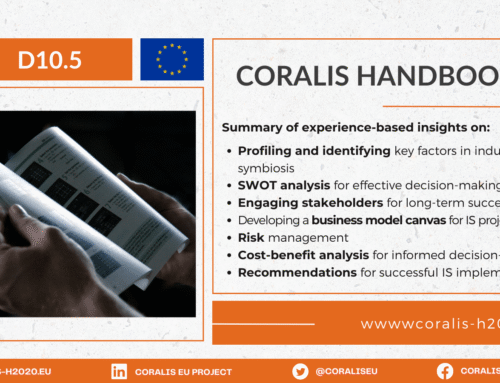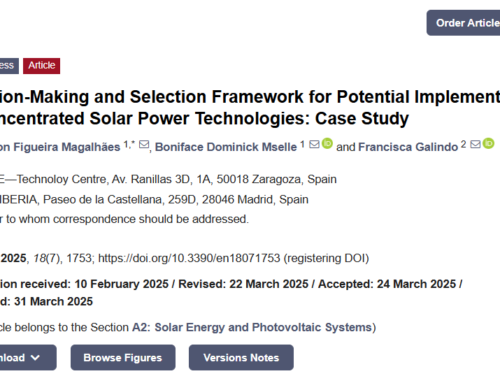CORALIS Deliverable 9.4 on, Analysis for the Cross-Sectorial Replication of IS Technologies, written by Oskar Räftegård and Elias Andersson from RISE, focuses on evaluating the potential for replicating industrial symbiosis (IS) technologies across different sectors, particularly in the context of SPIRE industries (Sustainable Process Industry through Resource and Energy Efficiency). It explores how to further enhance improved resource efficiency by identifying promising technologies and synergies that can be replicated across various industries to enhance resource efficiency and sustainability, and increase the knowledge about IS possibilities among the industrial actors.
Despite vast technological databases with evaluated and demonstrated technologies in development (Technology Readiness Level 6-9), finding specific IS solutions remains challenging. One major outcome of the CORALIS project has been the development of “Industrial Technology Solution Briefs”, to overcome some of the above replication barriers. These briefs serve as a user-friendly way to provide clear and concise descriptions of IS technologies, emphasizing conditions under which each technology has demonstrated success. They also cover non-technical aspects, such as business models and social acceptance, crucial for IS implementation of High-Potential IS Technologies.
The report addresses sectors where IS can make a significant impact. Specifically, the project identified potential for utilizing residual heat, metals, and other resources from iron/steel, aluminium, waste treatment, and energy sectors. Thirteen waste streams with substantial replication potential across these sectors has been highlighted, with a potential of saving about 90 Mton CO2-eqv/year while contributing to about 30 billion €/year added value.
Beyond technology, the report identifies common barriers to IS adoption, such as inadequate infrastructure, lack of cooperation between companies, and insufficient management support. CORALIS aims to inform policymakers and stakeholders about these challenges, encouraging actions that support IS adoption across industries. This includes promoting legislative changes and fostering collaboration between sectors to overcome technical, financial, and logistical barriers.
In line with the EU’s sustainability goals, CORALIS emphasizes the role of IS in transforming waste management and resource utilization. By fostering IS networks and compiling technology lists, CORALIS contributes to a circular economy model that minimizes waste and maximizes reuse potential. The insights and tools developed, such as technology briefs and a database of promising IS technologies, offer a replicable approach for industries to transition towards sustainable practices.
Deliverable 9.4 underscores the need for ongoing collaboration among industry stakeholders, policymakers, and technology developers. Through continued development and refinement of IS technologies, CORALIS aims to make industrial symbiosis an accessible and practical option for a broader range of sectors, contributing to a sustainable, low-carbon future across Europe.
For more details, read the full report here.


